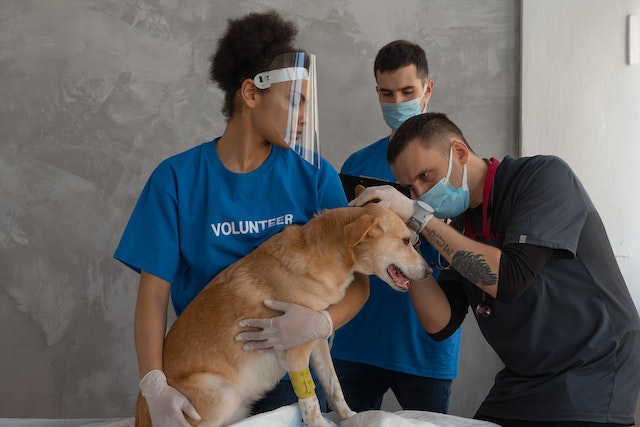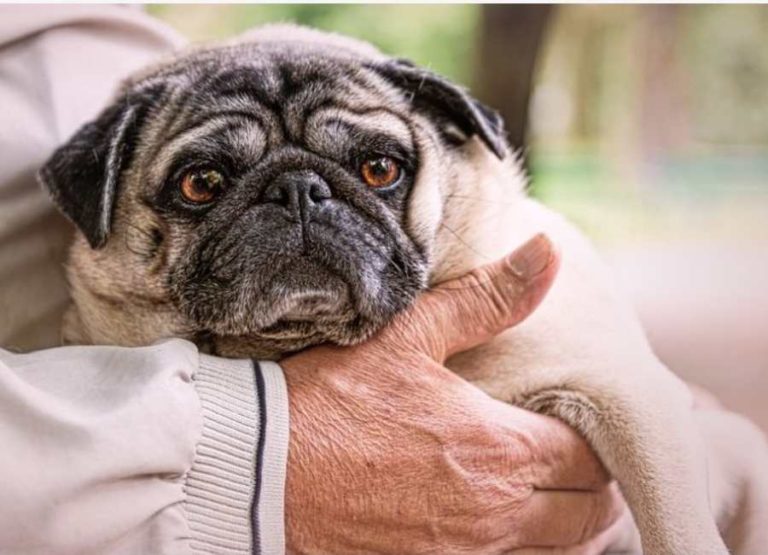Why Do Dachshunds Shake: 9 Common Reasons & Tips

Dogs shake for a variety of reasons, but why do dachshunds shake, join me let’s find out together!
All through this post, we will be discussing all the possible and common reasons why your dachshund may be shaking, so grab a cup of coffee and read through!
Dachshunds shake for a variety of reasons, some of which are beyond your control and some just need a little adjustment to fix.
However, when your dachshund continues to shake for more than the usual time, like shaking when you touch a certain part of his body, you should see your vet right away.
Why Do Dachshunds Shake
Excitement, separation anxiety, stress, cold weather, seizure symptoms, generalized tremor syndrome, age, medical concerns, or signals of dachshund death can all cause dachshunds to shake.
Dachshunds shaking is always a common response to some health and environmental situations you need to address.
The following are some of the most common causes of dachshund shaking that may be or may not be out of your control:
1. Sign of cold
Even though a dachshund’s typical body temperature is roughly 101 to 102.5 degrees Fahrenheit, if the room or ambient temperature drops too low, your dachshund will get chilly.
Your dachshund may begin to tremble if the temperature in the environment drops to a level that your dachshund cannot handle.
Consider the temperature of the room if your dachshund is trembling and the weather isn’t helping.
Tips
When the temperature of your environment is cold, there are two possible ways to go so as to make sure your dachshund isn’t caught in cold shaking.
First, you invest in dachshunds clothing, which is affordable in so many pet stores online and offline.
Secondly is increasing the temperature of one of your rooms, taking your pup into such room for a short while, and then giving your dachshund some exercise.
2. Sign of chronic pains
If your older dachshund shakes or trembles especially when you touch his hindquarters, he might be suffering from canine arthritis.
Shivering or excessive shaking in dachshunds can be caused by a variety of ailments, so keep a watch on your dog if you see extreme shaking.
If you notice your dachshund shaking while trying to stand or your dachshund doesn’t allow you to touch a certain part of his body, then you should act fast.
Tips
When your dachshund suffers from chronic pain you should see your vet immediately, you can observe this when you try to cuddle or pet your dachshund all over his body.
He will react once you touch a part of his body that discomfort him.
Your veterinarian may prescribe additional diagnostic tests and/or pain treatment depending on the reason for your dachshund’s chronic pains.
Chronic pains if left untreated can lead to your dachshund developing behavior issues.
3. Sign of excitement
This is the most likely cause of your dachshund’s tremors. They require a means to expend some of their energy when they become stimulated.
They can become enthusiastic before a walk, when you come home, or when you give them a reward.
Perhaps there’s a squirrel outside, waiting for you to open the door so he can dash into the garden at full speed.
You may notice them trembling in addition to barking, leaping, and generally racing about; nonetheless, they are not in danger.
When something wonderful happens, your dachshund may become overly excited and begin to quiver.
When dachshunds experience a sudden surge of exuberant energy, it can come out in a variety of ways like shaking.
Tips
Shaking when excited is not an issue because the shaking is temporary and goes away soon after what excited them.
4. Sign of seizure
Most hounds experience seizures generally, so it’s not a new thing to see your dachshund experience seizures at one point or the other.
Epilepsy or other seizure-inducing diseases cause dachshunds to tremble. They will display other indicators if the trembling is a symptom of a seizure.
Foaming at the mouth, losing consciousness, falling over, and paddling their legs are only some of the symptoms.
Tips
If your dachshund begins to have seizures, call your veterinarian straight away. Medications for seizure control may be of assistance.
Seizures in dachshunds include jerking, tongue biting, loss of consciousness, and collapse.
To manage the seizures, they will normally be prescribed a course of medication.
5. Sign of toxin ingestion
While nicotine in cigarettes is dangerous, xylitol, a sugar replacement found in many chewing gums, is not.
Small dogs, like dachshunds, are especially susceptible to both.
These substances or poisons can cause considerable shaking and shivers in dogs like dachshunds.
Your dachshund may shiver or shudder as a result of a bee sting, a snake bite, acute food poisoning, or scorpion stings.
Even if you don’t see your dachshund come into contact with anything poisonous or hazardous, this is a major issue.
Tips
Please take your dachshund to the veterinarian if you suspect or detect that he has consumed anything possibly harmful or has been bitten by a tiny animal.
Dachshunds may also show the following indicators of toxin consumption:
- Disorientation
- Continues vomiting
- Sudden Weakness
- Fainting
- Difficulty breathing
6. Sign of hypoglycemia
Hypoglycemia is defined as a sudden drop in sugar levels. When your dachshund’s body is low on sugar, it starts shaking in reaction to hypoglycemia.
Hypoglycemia, a condition in which dachshunds quiver and shake, is also a risk.
This issue is more common in puppy dachshunds because their capacity to control sugar levels in their blood has not fully evolved (up to 4 months).
Hypoglycemia can cause your dachshund to lose consciousness or, in the worst-case situation, death if left untreated.
Hypoglycemia can be caused by a variety of factors, including stress, malnutrition, and even being the runt of the litter.
7. Sign of pending spine injury
Dachshunds are known to have back injuries due to their body long structure, which is why you should be careful with them if live where there are lots of stairs to climb.
Your Dachshund’s trembling might be the result of a pending back injury or disease.
Excitedly jumping off the sofa or scooping up your dachshund in the incorrect way might cause a looming spine condition.
Tips
You must take your dachshund to a veterinarian for an examination from time to time.
You should take your dachshund to a veterinarian if they exhibit symptoms such as squealing, diarrhea, vomiting, or difficulty moving.
If your Dachshund is shaking or having trouble gazing at you, get medical attention right once.
8. Sign of generalized tremor syndrome
This sickness, sometimes known as shaker syndrome, is defined by full-body tremors comparable to those experienced by a dog when it is cold.
Generalized tremor syndrome has different symptoms in different dogs, but it most typically affects dachshunds between the ages of three and five.
Despite the fact that no one understands what causes widespread tremor syndrome, it is widely assumed to be non-lethal.
Tips
Your veterinarian may prescribe corticosteroids, but shaking is an unavoidable part of life for some pets.
Always take your dachshund to the veterinarian if he or she continues to shake for no apparent reason.
9. Sign your dachshund is aging
Dachshunds are one of the most long-lived little dog breeds, with some reaching the age of 16 years.
As they become older, they have health problems as a result of their prolonged lives, which causes their legs to weaken, resulting in shaking.
Until you contact your veterinarian, there’s not much you can do to help an aged dachshund that shakes or shivers.
As a result of several health difficulties associated with age, their joints are weak and ancient, and they can no longer effectively support their bodies’ weight.
Tremors in the back and front legs of senior dachshunds are increasingly common, making it difficult for them to move correctly and producing trembling or shivering.
Tips
Consult your veterinarian when your dachshund reaches the age of ten to identify the best course of action for your senior dachshunds.
Now that I have answered your question, Why Do Dachshunds Shake, let’s take look at some specific shaking and their meanings.
Dachshunds shaking meanings
Here are some common meanings of dachshund shaking in a specific way you should know:
Dachshunds shaking and panting
Seizures, increased discomfort, poisoning, renal sickness, injury, allergic reactions, toxins, bites, and stings are all possible causes of excessive shaking and panting in dachshunds.
Shaking and panting in your dachshund should not be dismissed, especially if it isn’t due to excitement; whatever the cause, make an appointment with your veterinarian.
Dachshund shaking head
Ear infections, flea bites on the head skin, allergies, and head tremors induced by a head injury all-causes dachshunds to shake their heads frequently.
Dachshunds may shake their heads due to old age or other diseases.
Dachshunds are prone to ear infections due to the shape of their ears, and ear infections are one of the most prevalent reasons why owners see their veterinarians each year.
An elderly dachshund’s head shaking might indicate an ear infection, ear mites, parasites, allergies, hematoma, or even balance concerns.
Examine their ears to see whether there’s an issue, but the condition persists. Schedule a consultation with your veterinarian.
Dachshunds shaking hind legs
Patellar luxation, often known as sliding or floating kneecaps, is a common ailment that affects the hind legs of many dogs, especially small breeds like dachshunds.
Remember that shaking doesn’t always mean your dog has a neck or spinal injury or a neurological problem; nevertheless, if you’re still concerned, get medical attention.
The most common causes are anxiety, a cold, or age-related tremors.
Dachshunds vomiting and shaking
An upset stomach can be caused by a hazardous plant, onion ball, garlic ball, or poisoned substance, all of which can induce vomiting and shaking in a dachshund.
A bulging stomach, pancreatitis, or renal disease can cause Dachshunds to vomit and tremble.
Trembling and vomiting in your dachshund are symptoms that something is wrong, and they should visit a doctor immediately once.
Keep track of how frequently they vomit, how much they vomit, and what color it is, and contact your veterinarian if it doesn’t cease after a few hours.
Dachshund in pain and shaking
Dachshunds can be in pain and shaking if the dachshund has patellar luxation, a condition that is often known as sliding or floating kneecaps, which is a common ailment that affects the dachshund hind or fore legs.
I strongly hope with all the above information provided on this page, your question of why do dachshunds shake was answered to your understanding!





![Dog Not Eating But Throwing Up [9 Reasons & Tips] Dog Not Eating But Throwing Up](https://petcreeks.com/wp-content/uploads/2023/04/Dog-Not-Eating-But-Throwing-Up-768x555.jpg)
![Anxiety In Dogs [Causes, Signs, & Remedies] Anxiety In Dogs](https://petcreeks.com/wp-content/uploads/2023/12/simon-hurry-_LhjpmruUAo-unsplash.jpg)